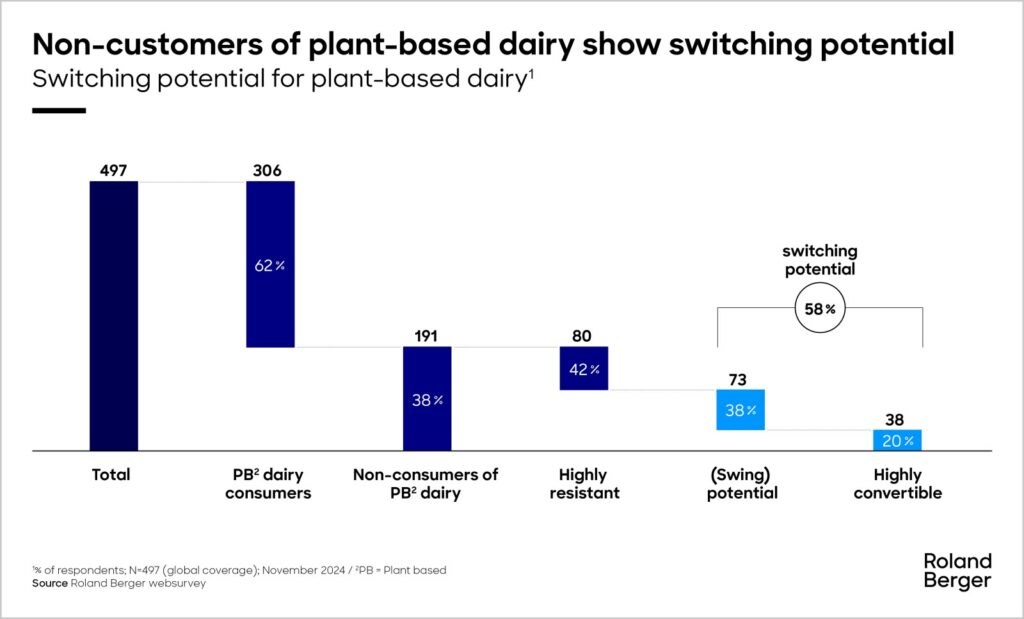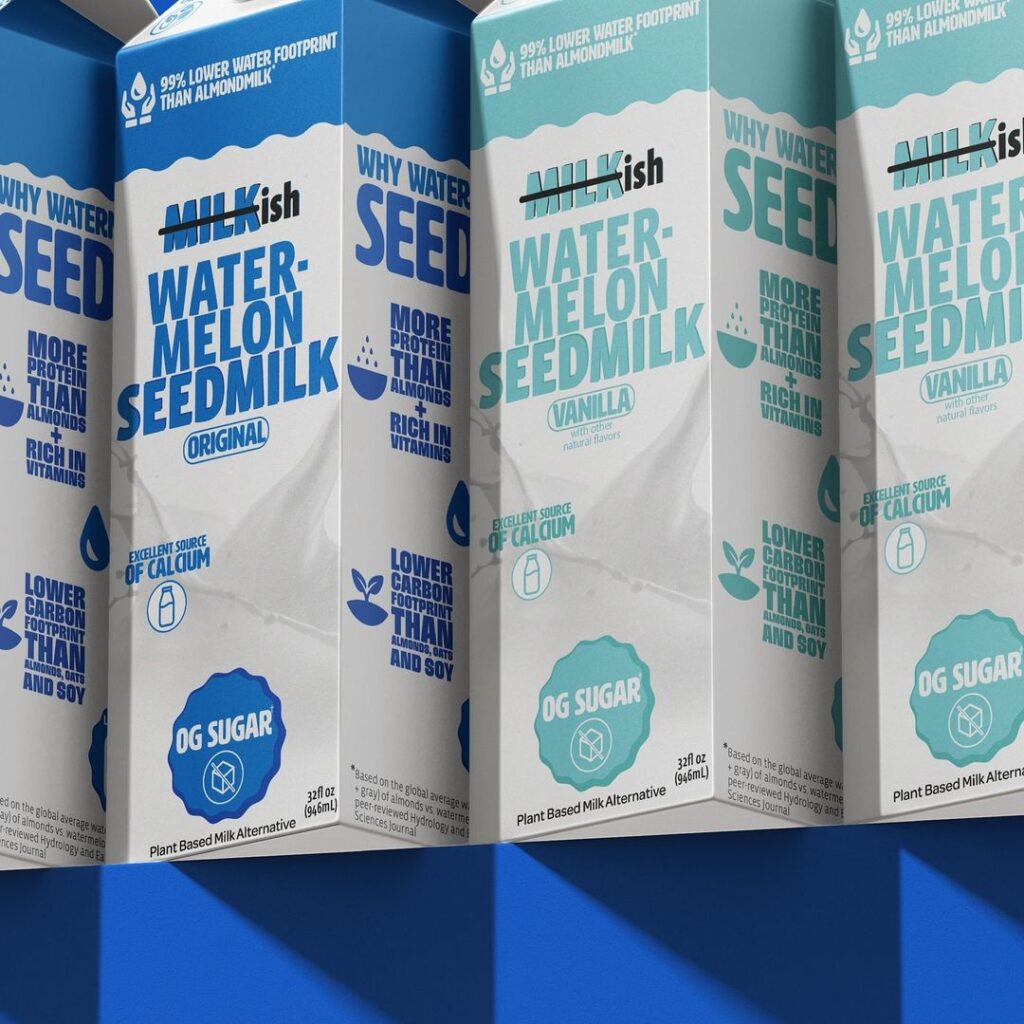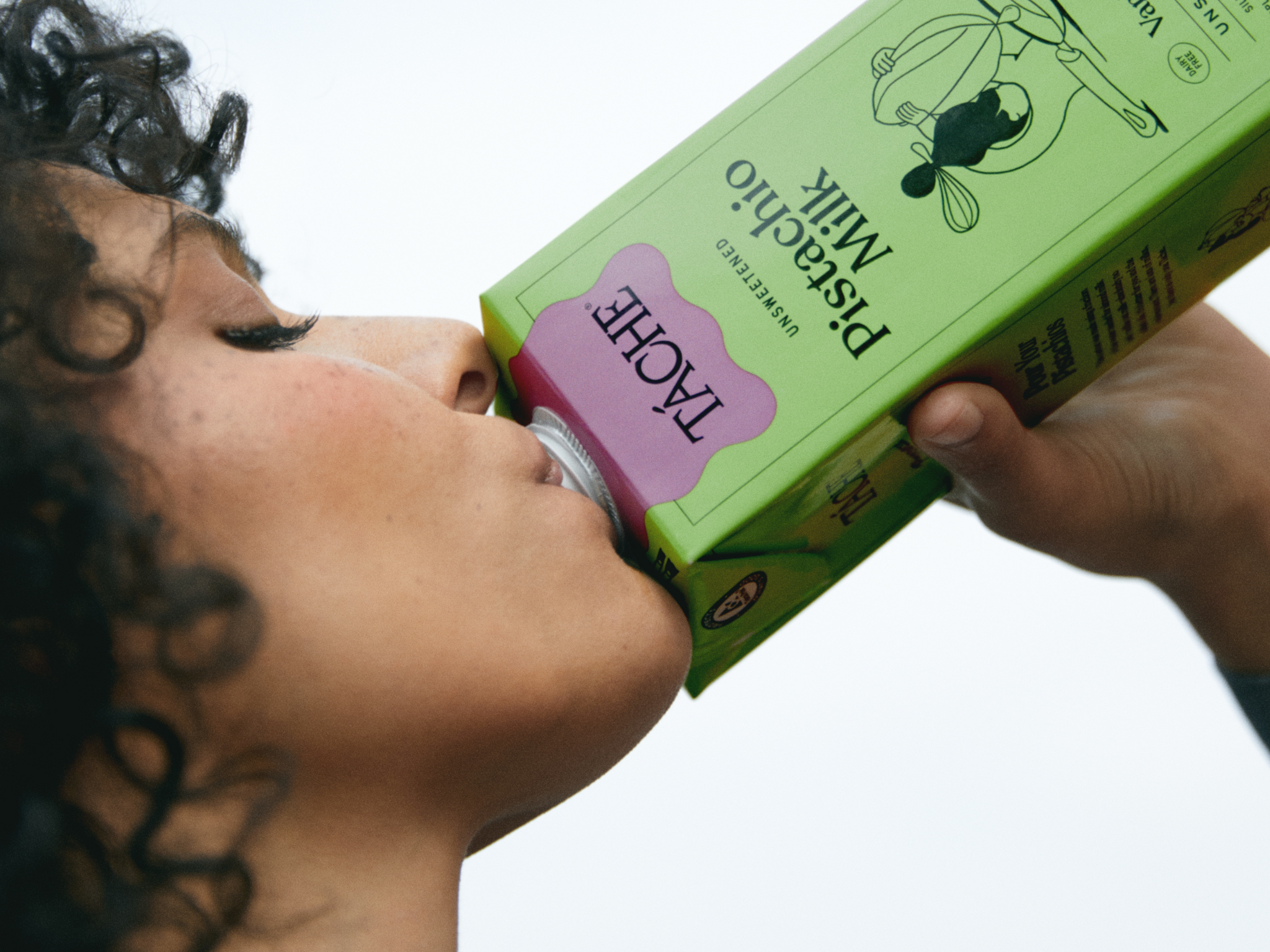Understanding ‘Switching Potential: Better Taste & Access Could Unlock Thirst for Plant-Based Dairy
4 Mins Read
Dairy-free milk is the most evolved market in the plant-based industry, and a majority of non-drinkers show a potential to switch if certain barriers are removed.
The majority of people who don’t consume oat milk, vegan Cheddar or coconut yoghurt are open to doing so, as long as manufacturers and retailers improve some aspects of these products, according to analysis by European consultancy firm Roland Berger.
The company notes that plant-based dairy is on the rise, though its popularity fluctuates between different products and markets. Asia, for example, leads the worldwide market, with $13.4B in sales in 2023 – China alone accounted for $9.5B of this, compared to $4.5B in North America and $4B in Europe.
However, it remains the largest segment in the plant-based food space by some distance – in the US, they account for 36% of the share, while in Europe’s largest markets, they make up 41% of all vegan sales.
A big reason for this popularity is that plant-based milk isn’t just restricted to vegan shoppers – it appeals to a much wider base of consumers, from folks who are lactose intolerant or allergic to dairy, others who simply prefer its taste, health, or sustainability credentials.
What is the alt-dairy ‘switching potential’?

There are several barriers, though, that are blocking plant-based dairy products from reaching their full potential, seeing as non-dairy alternatives only account for 14.5% of the overall milk sector in the US and just 10% in Germany (Europe’s leading plant-based market). This further slumps when it comes to other dairy products like cheese, yoghurt or butter.
Roland Berger conducted a global survey of nearly 500 consumers in late 2024, aiming to identify the drivers and barriers of plant-based dairy consumption. It revealed that six in 10 people buy non-dairy alternatives, underscoring the popularity of this segment.
Among the 38% of people who don’t, however, a majority show what it calls “switching potential” – they are open to making the shift to plant-based dairy if their needs are met. Of these, one in five are ‘highly convertible’, and another 38% have the potential to swing.
So what’s stopping them? The primary issues lie with the taste and texture (which leave 57% of respondents unsatisfied) and a lack of in-store availability (cited by 55%). High prices are also a significant concern for 37% of the respondents.
The impact of associating plant-based dairy products with ultra-processed foods (UPFs) is clear to see, with 29% of consumers deterred from buying them because they perceive them as overly processed. Another 15%, meanwhile, complain of a lack of information about their nutritional benefits.

How brands can encourage consumers to make the switch
So how can companies deliver on plant-based dairy’s switching potential? Roland Berger took the example of leading brands like Alpro, which is focusing on innovation and product expansion across multiple categories, and Oatly, which leverages its “early-mover advantage” by concentrating on its hero product.
“These strategies appear to be effective, with plant-based dairy brands gaining increasing recognition among consumers,” the firm said. Its survey found that Alpro and Oatly are recognised by 83% and 82% of respondents, spotlighting the success of their marketing efforts.
To make a real dent in the dairy segment, plant-based brands need a targeted approach, according to Roland Berger. It recommends partnering with suppliers to optimise protein crops and improve extraction techniques, which would help improve product quality and lower costs.

Companies should also focus on recipe innovation to enhance the taste and texture of their offerings, while smaller packs could be a good way in for new consumers. Continued efforts in brand building and expanding distribution, meanwhile, will help increase awareness and availability of plant-based dairy, a key pain point for those with switching potential.
Finally, product innovation should tap into consumer needs – think high protein, high fibre, etc. – and open up new market opportunities, including in categories beyond milk.
A host of startups are coming up with innovative plant-based milks that go beyond the mainstream, offering products made from pistachios, pecans, watermelon seeds, and even bananas. “The rise of plant-based dairy reflects a profound shift in consumer preferences towards sustainability and health, which paves the way for innovation and growth in the market,” said Alexander Belderok, a senior partner at Roland Berger.



